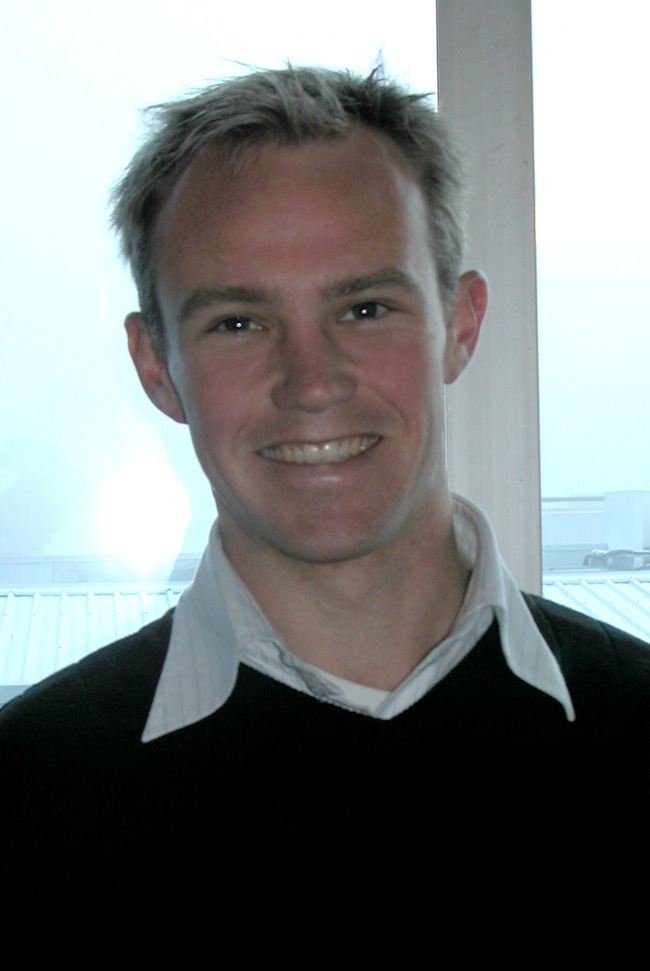 Scott Hooson has always enjoyed getting out and about, looking at birds and animals. So when he came to Otago he studied Ecology and Geography, completing a combined Bachelor of Science (Honours). Then he went on to do an MSc in Zoology, spending time on various off-shore islands studying the breeding success of the South Island Saddleback, an endangered native bird.
Scott Hooson has always enjoyed getting out and about, looking at birds and animals. So when he came to Otago he studied Ecology and Geography, completing a combined Bachelor of Science (Honours). Then he went on to do an MSc in Zoology, spending time on various off-shore islands studying the breeding success of the South Island Saddleback, an endangered native bird.
Scott says he particularly enjoyed the field work components in his study at Otago. “I have always been outdoors person, I love nature. I really enjoyed field trips to the Catlins, Mt Cook and so on, looking at things first hand in the field and figuring out how and why things are the way they are”.
Scott is currently working for the Department of Conservation as Technical Advisor for Operation Ark, a South Island-wide project designed to protect three particular native bird species. Scott's part of the project in Canterbury is mainly concerned with protecting orange-fronted parakeets in large areas of beech forest. Scott started working on the project when Operation Ark was still in the planning stage, and it's been very satisfying to see the planning now come to fruition.
“Operation Ark has been going for about 12 months now, and this season there has been an increase in the orange-fronted parakeet population. The project involves really intensive trapping and baiting to keep predators under control in the three valleys where orange-fronted parakeets are found, rather than fencing them out. In beech forests predator numbers are very high in some years, and low in others. This year predator numbers were high, but indications are that we've had a pretty good breeding season”.
Monitoring and assessing native bird populations is very closely related to the work Scott did for his Masters thesis, and he says the work he's doing is also closely aligned with his studies in Ecology.
“You study whole ecosystems, and that's what I'm working with, trying to understanding the beech forest ecosystem, its food chains, and predator cycles ”.
Scott is really enjoying his work with the Department of Conservation and he has no plans to move on in the near future, but ultimately a purely research role would be appealing.